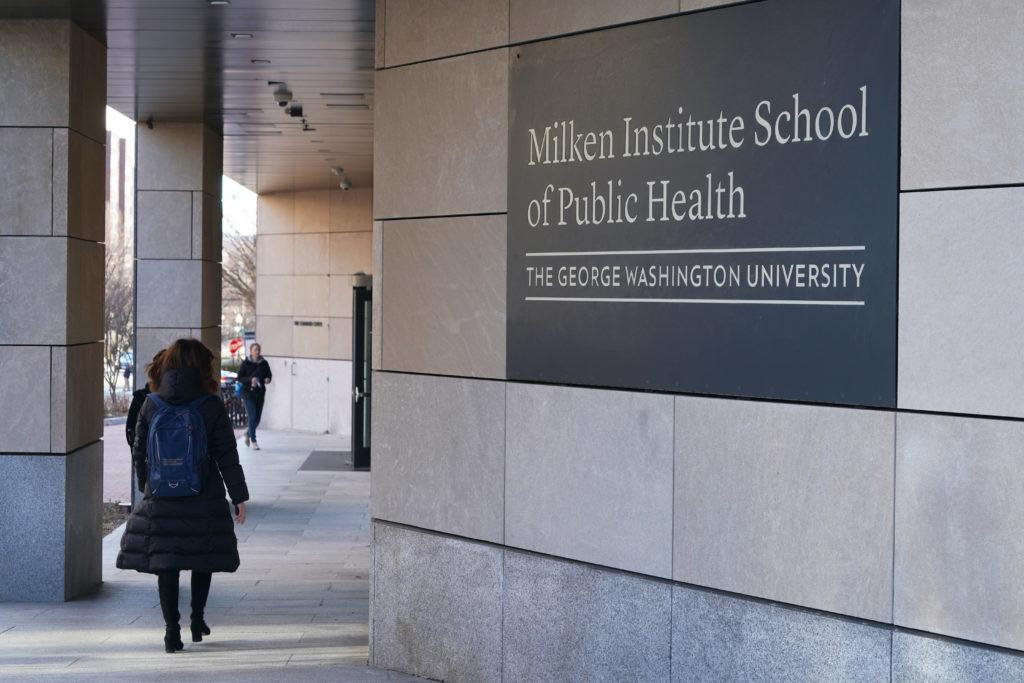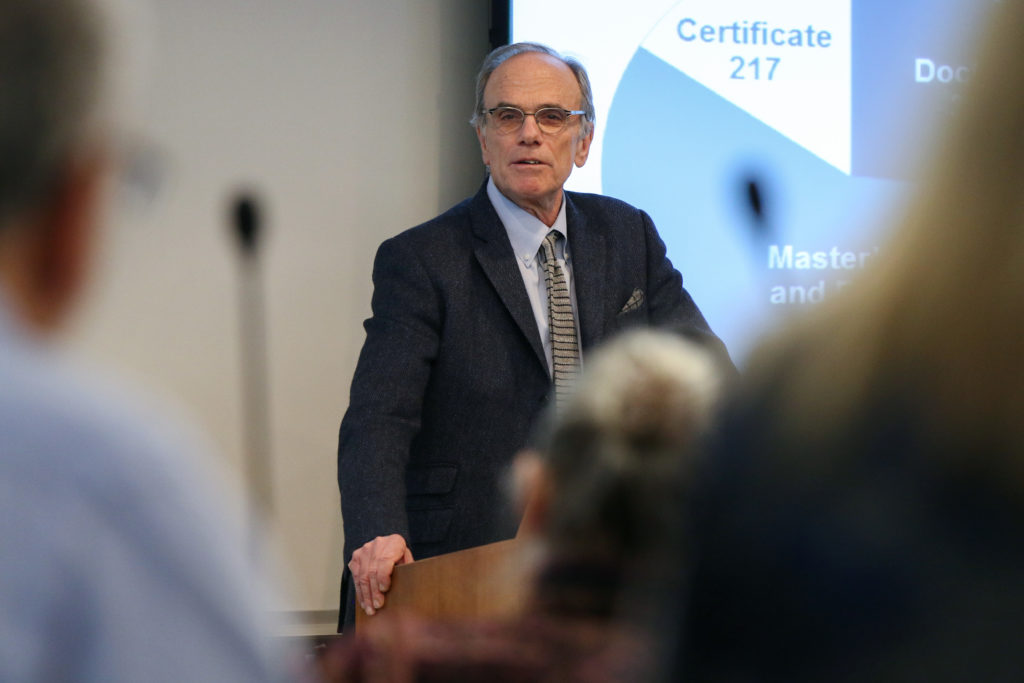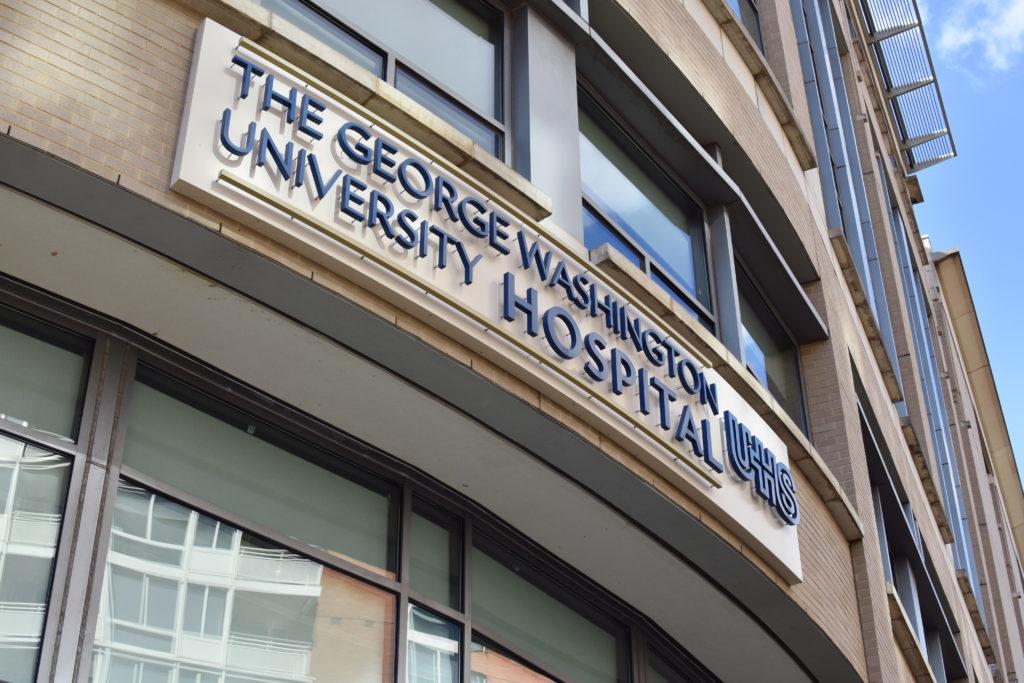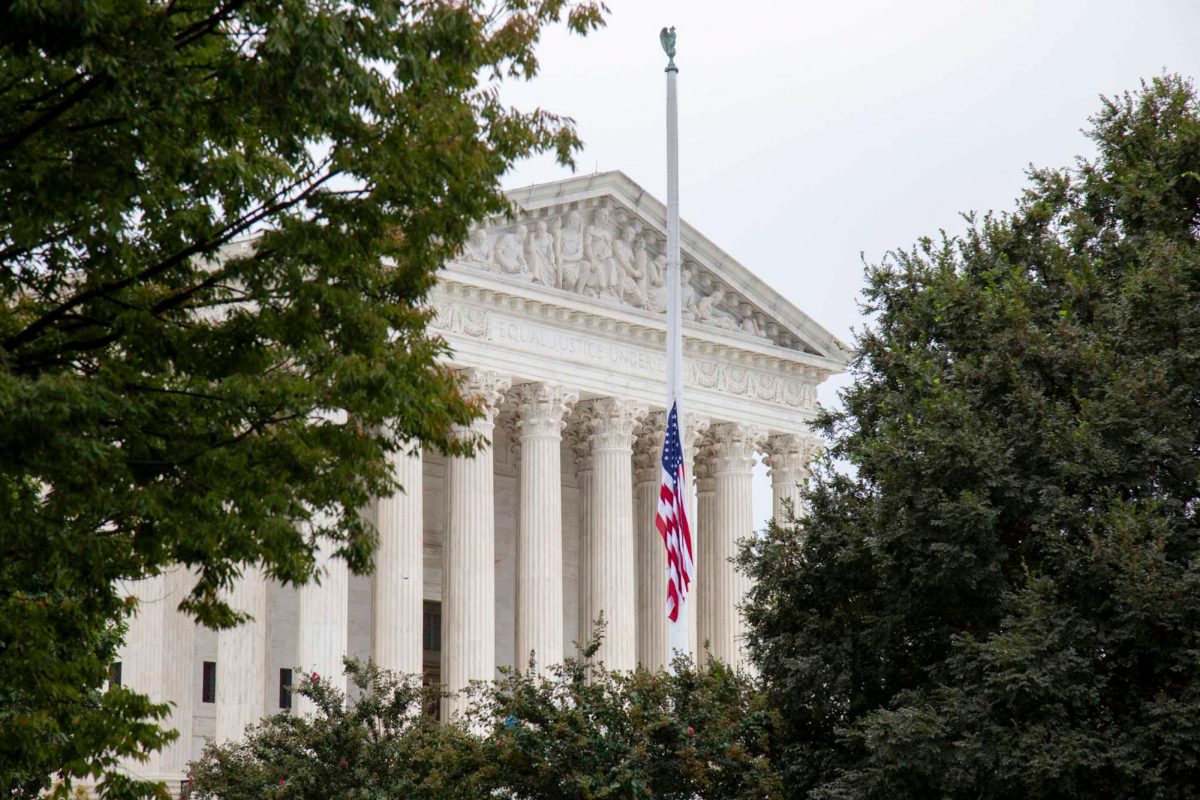Researchers from the Milken Institute School of Public Health found that catching COVID-19 while pregnant can increase the risk of death by seven times, according to a study released last Monday.
Emily Smith, the project’s lead author, said the study found that people infected with the coronavirus during any stage of pregnancy face a higher risk of pneumonia and neonatal morbidity by more than seven times. Smith said the research project started its meta-analysis of studies on COVID symptoms during pregnancy in early 2020 and included data from more than 13,000 subjects who tested either positive or negative for COVID from 12 different countries.
“This is by no means the first study to show that COVID in pregnancy is not good from mom to baby,” Smith said. “It is far from the first study to show that.”
Smith, an assistant professor of global health at the Milken Institute School of Public Health, said she hopes other researchers can use the study’s “summary” data as a baseline for understanding the serious health risks COVID causes during pregnancy.
The Centers for Disease Control and Prevention reports that 71 percent of pregnant people aged 18 to 49 are vaccinated against COVID, and 20 percent of pregnant people received an updated booster shot.
She said she was “somewhat surprised” that the risk for serious health issues increased seven times among pregnant people, but clinicians already knew respiratory viruses and other infections can cause serious health issues in pregnant people like premature birth and miscarriage.
She said the World Health Organization was slower than the U.S. to make “positive recommendations” for pregnancy. The WHO released recommendations for pregnant people to get vaccinated in November of 2021, nearly a year after COVID vaccines were available to the public.
Smith said identifying COVID risks in pregnancy is difficult through research because of the high number of subjects with COVID who are needed, and the same is true for comparing pregnant and nonpregnant people to study pregnancy complications.
“This is somewhat unique from the existing COVID literature because we have data from all over the world,” Smith said. “Especially pregnant women in Asia and Africa have been underrepresented in the published literature so far.”
Kate Grusich, a spokesperson from the Centers for Disease Control and Prevention, said the CDC recommends vaccination and boosters against COVID for people who are pregnant and people who are breastfeeding. She said pregnant people who catch COVID have a higher risk of severe illnesses that can lead to hospitalization, intensive care unit admission, ventilation and cardiac and respiratory life support.
“Evidence continues to show that COVID-19 vaccination before and during pregnancy is safe, effective and beneficial to both the pregnant person and the baby,” Grusich said in an email.
She said the benefits of COVID vaccination during pregnancy “outweigh” the risks of infection from COVID. Grusich said there is “no evidence” to suggest COVID vaccines are harmful to people who are breastfeeding or to their babies, and COVID vaccines are not associated with fertility problems in women or men.
“COVID-19 during pregnancy increases the risk of delivering a preterm or stillborn infant,” Grusich said. “Perinatal transmission from the pregnant person to their infant has been reported, but it is rare.”
Experts in infectious disease and epidemiology said the study reinforces existing research that found pregnant people encounter greater health risks from catching the coronavirus than receiving COVID vaccines.
Amesh Adalja, a senior scholar at the Johns Hopkins University Center for Health Security, said vaccine hesitancy among pregnant people is increasingly common because of similar perceptions of distrust among the general public. He said research that found pregnant people have a higher risk of death from COVID caused pregnant people to be classified as a risk group for severe COVID.
He said pregnant people have a higher risk of complications due to COVID, but health care providers can counsel patients about vaccination to protect pregnant people and their infants from COVID. Adalja said the danger of disinformation is a major challenge to the willingness of vaccine reception in pregnant people.
“That data research that makes it into the mainstream media may influence the willingness to get a vaccine,” Adalja said.
David Savitz, a professor of epidemiology at the Brown University School of Public Health, said the study reinforces that the risks from catching COVID in pregnant people are more serious than the “absence of adverse effects” from the COVID vaccines. He said monitoring for potential adverse effects of the vaccines in pregnant people can help researchers detect problems before they occur.
He said vaccine trials excluded pregnant people in the past, but health care providers now have enough information about vaccine safety to know pregnant people are safe to receive vaccines. Savitz said studies that “documented” vaccine effects in pregnant people will always be needed to monitor potential problems in pregnancy and vaccination.
Misinformation about the risk of receiving a COVID vaccine during or before pregnancy created false theories that they cause infertility and are unsafe for pregnant people who are breastfeeding.
“So I think that’s really the message to reinforce there is that this is all about what happens if you don’t get vaccinated, the risk that you may be facing,” Savitz said.








